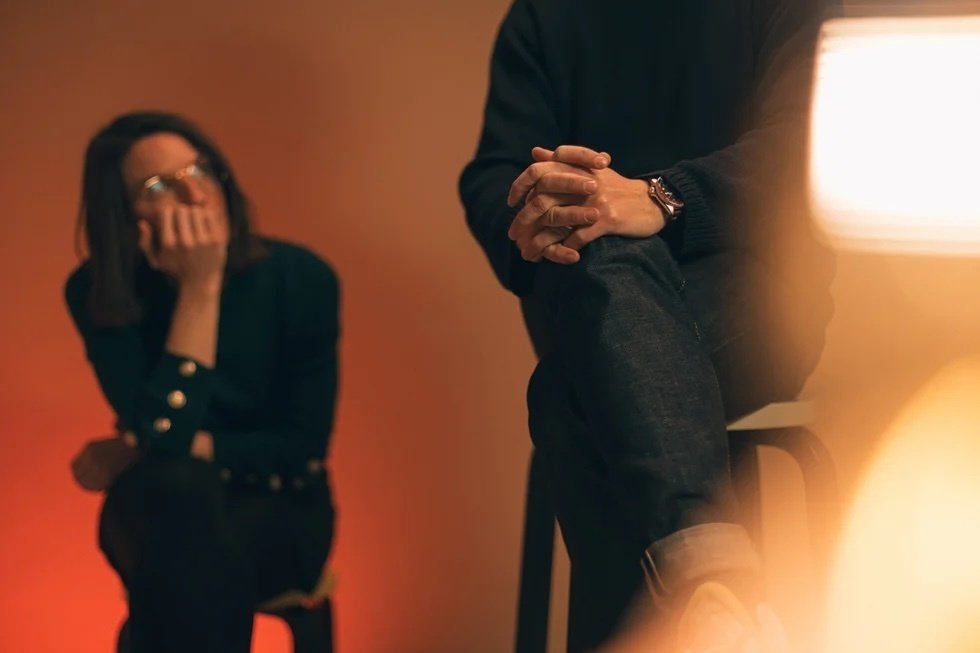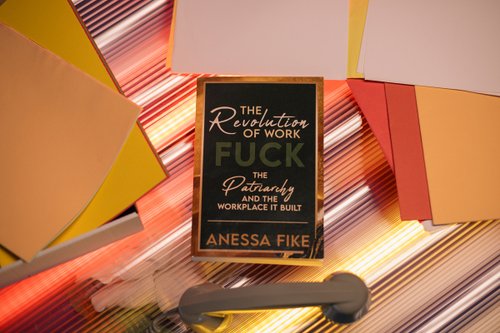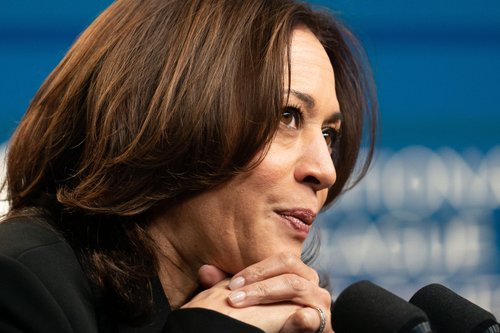Fair Play: When feminism and fragile masculinity collide in the office
Mar 04, 2024
5 mins


Journalist and editor
Media is a reflection of the society we live in, which makes film a powerful medium to examine women’s changing relationship with work. Ideals and opportunities have shifted over the centuries, and women have broken down professional barriers and reshaped the way society views them in the workplace.
Film can be a window into the evolving struggles of women and the deep-rooted systems that influence their relationship with work. From classic films like 9 to 5 or The Devil Wears Prada, we can see how the perception of women in the workplace has shifted over the years and continues to do so. Most recently, in Fair Play, writer and director Chloe Domont explores the complexities between personal and professional lives, romantic relationships, and the invisible sexism women still battle.
Setting the scene
The story follows Emily (Phoebe Dynevor) and Luke (Alden Ehrenreich), a seemingly happy couple whose world is turned upside down by a change in power dynamics. We first see them together at a wedding where Luke proposes to Emily, and she happily accepts. The following morning, their alarm goes off at 4:30, and they part ways to go to work. However, things begin to feel off when they both arrive at the same office and act as if they don’t know each other well. If the early morning alarm seemed like a red flag, you would be right, as it’s quickly revealed that they both work in a toxic environment as high-stakes financial investment analysts.
They go about their days separately until they witness one of the managers being fired. He takes a golf club to his computer, destroying his office as the rest of his coworkers calmly continue watching a video on promoting well-being in the workplace. When Emily overhears another analyst saying that Luke is going to get the promotion, she eagerly finds an excuse to talk to him so she can tell him the good news. When they get home, they celebrate his impending promotion and decide that once Emily is also promoted, they can finally make their relationship public. However, the celebration ends when Emily finds out that it’s she, not Luke, who is receiving the promotion. What follows is a twisted hyperbole of the ingrained prejudices that still influence many modern romantic and professional relationships but which is revealed only when a previously unnoticed power dynamic is reversed.
Have women always worked?
Many of the difficulties women continue to face in the workplace are due to ideals of femininity constructed in the 19th century and reinforced in post-war American society, which persist today. While women have shared labor with men since the dawn of time, the oppressive ideas of traditional womanhood were formed in the 19th century by movements such as the Cult of Domesticity, a values system propagated by middle- and upper-class people. It pushed the idea that women were meant to exist in a “separate sphere” from men; their domain was the home, and their role was to be a beacon of morality and support for their families. Obviously, this was a reality only for wealthy women – working-class women continued to toil as they always had. While women were barred from most professions, the idea of an all-male workforce is a myth. In addition to domestic labor, women worked in such areas as service, manufacturing, and teaching.
In the 20th century, women stepped up to take over jobs in typically masculine fields during wartime. However, much of this progress was lost in the cultural reconstruction of post-war America. As men returned to the workforce, women were relegated to the home as a resurgence of 19th-century ideals swept society with the rise of the nuclear family. Rigid gender dynamics were put back in place to facilitate the economic boom and soaring birth rates that resulted from the end of the war.
The likeability paradox
In Fair Play, it’s clear that Emily is still expected to adhere to these standards. Even though she has become incredibly successful in a male-dominated industry, she still tries to live up to what is expected of her as a woman. She is demure, quiet, and supportive of Luke as he and the rest of the men in the office parade around, causing a scene any chance they get. Her gentle attitude has taken her this far, but once she is promoted, she is forced to pivot as she becomes a perceived threat. From the moment she enters her new office, she notices a shift in how she’s treated. One coworker offers a paltry apology for any way he may have mistreated her in the past, insinuating that he fears she will use her new position to punish him. Other colleagues soon begin scrutinizing why she was chosen, with one man commenting that maybe he should “just get a sex change,” illustrating the common and sexist misconception that successful women are simply handed their opportunities for the sake of appearances. In reality, for every 100 men promoted and hired to manager, only 72 women are elevated.
What Emily is experiencing is known as the Likeability Paradox, a phenomenon in which women need to be perceived as “likable” to succeed, but when they become more successful, they are seen as less likable. Even Luke begins to criticize Emily, telling her she can’t expect to be taken seriously when she dresses like “a fucking cupcake.” To combat this, Emily doubles down on trying to please the men around her by dressing less feminine, becoming “one of the boys” by going to a strip club and making lewd jokes about women with her coworkers, and even promising to help get Luke promoted to fix the power dynamic between them.
Are we moving backward?
When discussing her motivations for making the film with Harper’s Bazaar, Domont talks about what kind of man Luke represents, that he is “a certain generation of men caught between wanting to adhere to [the principles of] a modern, feminist society [and] still having been raised on traditional ideas of masculinity… If Luke had continued to succeed and been just one step above Emily, they would’ve had a great relationship.” This statement speaks volumes about the current environment, where women are more independent than ever, but even feminist men still have subconscious biases to overcome when it comes to women outperforming men.
While the feminist movements have advanced women’s rights exponentially in the past few decades, we are still not nearing equality. In fact, young workers are the source of an alarming trend. One study found that Gen Z men (aged 16-29) have more conservative views than Baby Boomers (aged 60+) when it comes to gender politics. They found that 26% of Gen Z men felt it was harder to be a man than a woman, and 30% felt that misogynistic content creators such as Andrew Tate bring up valid points about “threats to male identity and gender roles.” This data is troubling when you consider that Gen Z is expected to constitute nearly one-third of the workforce by 2030.
So, in an age where some young Americans are more progressive than ever before, why are some young men turning to sexist ideals? Some experts believe that the recent resurgence in conservative values and ideas of traditional masculinity is the result of the #MeToo movement. Over the past several years, many powerful men have faced public reckoning for their mistreatment of women, and some researchers think that seeing men face consequences for sexist behavior made many men perceive women as a threat for the first time. The Harvard Business Review conducted a survey that found that in the wake of #MeToo, 21% of men stated they were reluctant to hire women for jobs with “close personal interaction with men,” and 27% avoided one-on-one meetings with female colleagues.
What’s the takeaway?
While the film is an exaggerated portrayal of the development of a toxic relationship at home and at work, Fair Play unpacks very real issues that women continue to face in the workplace. Although it may seem that the professional barriers women were confronted with have disappeared from today’s world, the reality is that they still exist in the less conspicuous forms of latent bias and subconscious discrimination. Unless the young men surveyed above mellow as they get older, we can take it that sexism is on the rise. That’s why people of all genders need to continue advocating for equity in and beyond the workplace. We still have a way to go before we can stop discussing these age-old issues.
Photo: Welcome to the Jungle
Follow Welcome to the Jungle on Facebook, LinkedIn, and Instagram to get our latest articles every day, and don’t forget to subscribe to our newsletter!

More inspiration: DEI

Sh*t’s broken—Here’s how we fix work for good
Built by and for a narrow few, our workplace systems are in need of a revolution.
Dec 23, 2024

What Kamala Harris’s legacy means for the future of female leadership
The US presidential elections may not have yielded triumph, but can we still count a victory for women in leadership?
Nov 06, 2024

Leadership skills: Showing confidence at work without being labeled as arrogant
While confidence is crucial, women are frequently criticized for it, often being labeled as arrogant when they display assertiveness.
Oct 22, 2024

Pathways to success: Career resources for Indigenous job hunters
Your culture is your strength! Learn how to leverage your identity to stand out in the job market, while also building a career
Oct 14, 2024

Age does matter, at work and in the White House
What we've learned from the 2024 presidential elections about aging at work.
Sep 09, 2024
The newsletter that does the job
Want to keep up with the latest articles? Twice a week you can receive stories, jobs, and tips in your inbox.

Looking for your next job?
Over 200,000 people have found a job with Welcome to the Jungle.
Explore jobs